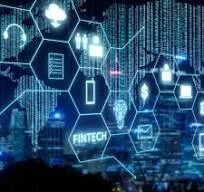Technological Disruption: Navigating the Transformative Waves of the Digital Era
In the 21st century, technological disruption has emerged as a defining force shaping industries, economies, and societies. The rapid pace of innovation, driven by advancements in artificial intelligence, automation, and digital technologies, is transforming how we live, work, and interact. As we navigate this era of unprecedented change, it’s crucial to understand both the opportunities and challenges presented by technological disruption.
The Scope of Technological Disruption
Technological disruption refers to the process by which new technologies displace established systems, practices, and industries. This phenomenon is not new; throughout history, technological advancements have periodically disrupted the status quo. However, the current wave of disruption is characterized by its speed and breadth, impacting virtually every sector of society.
**1. Artificial Intelligence and Machine Learning: AI and machine learning are at the forefront of technological disruption. These technologies are revolutionizing fields such as healthcare, finance, and transportation. AI algorithms are enhancing diagnostic accuracy, automating financial trading, and enabling self-driving vehicles. However, they also raise concerns about job displacement, privacy, and ethical considerations.
**2. Automation and Robotics: Automation and robotics are transforming manufacturing and service industries by improving efficiency and productivity. While this leads to cost savings and innovation, it also poses challenges for workers whose jobs are at risk of becoming obsolete. The balance between leveraging automation for growth and addressing its impact on employment is a critical issue.
**3. Digital Transformation: The integration of digital technologies into business processes, known as digital transformation, is reshaping how organizations operate. Cloud computing, big data analytics, and the Internet of Things (IoT) are enabling companies to optimize operations and deliver personalized customer experiences. However, this shift requires significant investment and adaptation to new business models.
**4. Blockchain and Cryptocurrencies: Blockchain technology and cryptocurrencies like Bitcoin are disrupting traditional financial systems. Blockchain’s decentralized ledger offers transparency and security, while cryptocurrencies present new opportunities for investment and financial inclusion. Yet, they also face regulatory challenges and concerns about security and volatility.
Opportunities and Benefits
Technological disruption brings a host of opportunities and benefits that can drive progress and improve quality of life:
**1. Innovation and Efficiency: Disruptive technologies foster innovation by enabling new business models and improving efficiency. AI-driven analytics can provide actionable insights, while automation can streamline operations and reduce costs.
**2. Enhanced Connectivity: Digital technologies enhance global connectivity, allowing for real-time communication and collaboration across borders. This connectivity supports remote work, online education, and global business expansion.
**3. Healthcare Advancements: Innovations in medical technology, such as telemedicine, wearable health devices, and personalized medicine, are improving patient outcomes and expanding access to healthcare services.
**4. Environmental Impact: Technological advancements can contribute to environmental sustainability. For example, smart grids and renewable energy technologies offer solutions to reduce carbon footprints and manage resources more effectively.
Challenges and Risks
Despite the advantages, technological disruption also presents significant challenges and risks:
**1. Job Displacement: Automation and AI have the potential to displace millions of jobs, particularly in industries reliant on routine tasks. Addressing this challenge requires reskilling and upskilling programs to help workers transition to new roles.
**2. Privacy and Security: As digital technologies collect and analyze vast amounts of data, concerns about privacy and cybersecurity are heightened. Ensuring data protection and securing systems against cyber threats are critical for maintaining trust and safety.
**3. Ethical Considerations: The rapid development of AI and other technologies raises ethical questions related to decision-making, bias, and accountability. Establishing ethical guidelines and frameworks is essential for guiding responsible innovation.
**4. Digital Divide: Technological disruption can exacerbate existing inequalities by creating a digital divide between those with access to technology and those without. Bridging this gap is crucial for ensuring that the benefits of technology are accessible to all.
Navigating the Future
To effectively navigate the waves of technological disruption, stakeholders—including governments, businesses, and individuals—must adopt a proactive and collaborative approach:
**1. Policy and Regulation: Governments need to develop policies and regulations that address the challenges of technological disruption while fostering innovation. This includes frameworks for data protection, cybersecurity, and labor market adjustments.
**2. Education and Training: Investing in education and training programs is essential for preparing the workforce for the changing job landscape. Lifelong learning and skill development will be crucial for adapting to new technological demands.
**3. Ethical Leadership: Technology developers and organizations should prioritize ethical considerations in their practices. Establishing ethical standards and ensuring transparency can help build trust and guide responsible innovation.
**4. Inclusivity: Efforts to bridge the digital divide and ensure equitable access to technology are vital for maximizing the benefits of technological disruption. Initiatives to provide affordable access and support digital literacy can promote inclusivity.
Technological disruption is reshaping the world in profound ways, presenting both exciting opportunities and formidable challenges. By embracing innovation while addressing its implications thoughtfully, we can harness the power of technology to drive progress and create a more equitable and sustainable future. Navigating this transformative era requires a balanced approach that considers the benefits, mitigates risks, and ensures that technological advancements serve the broader good of society.


